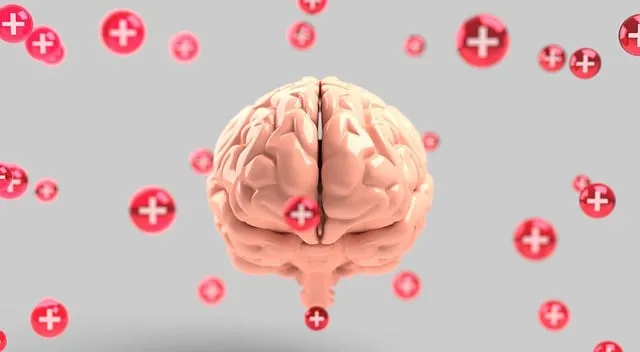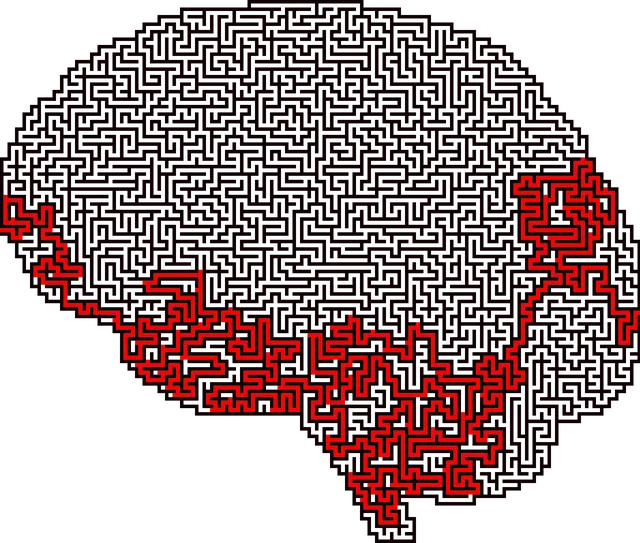Mental health diagnosis in primary care settings struggles with complexity and resource limitations, leading to inadequate provider preparation and potential misdiagnosis. To address this, Kaiser Permanente behavioral health services in Lone Tree employs advanced assessment tools, comprehensive training, evidence-based practices (like Mindfulness Meditation), and community engagement initiatives like workshops and educational programs. These strategies enhance diagnostic accuracy, promote proactive self-care, foster open mental health conversations, and ultimately improve patient outcomes.
Mental illness diagnosis accuracy is a critical aspect of primary care, yet challenges persist. This article explores efforts to enhance diagnostic precision, focusing on practices employed by Kaiser Permanente Lone Tree in their behavioral health services. We delve into understanding the complexities of mental health assessments and present evidence-based tools. Additionally, we emphasize the significance of provider training and support as a cornerstone for successful diagnosis improvement. By examining these strategies, healthcare systems can strive for more accurate and effective patient care, drawing insights from Kaiser Permanente Lone Tree’s pioneering approach to behavioral health services in their community.
- Understanding the Challenges: Mental Health Diagnosis in Primary Care Settings
- Kaiser Permanente Lone Tree's Approach: Enhancing Behavioral Health Services
- Evidence-Based Practices and Tools for Accurate Diagnosis
- Training and Support for Healthcare Providers: A Key to Success
Understanding the Challenges: Mental Health Diagnosis in Primary Care Settings

Mental health diagnosis in primary care settings presents unique challenges due to the multifaceted nature of mental illness and the often limited resources available. Primary care providers (PCPs) typically encounter a diverse range of patients with varying physical and psychological concerns, making it crucial for them to possess comprehensive knowledge about emotional healing processes and coping skills development. Unfortunately, many PCPs feel inadequately prepared to handle complex mental health cases, leading to potential misdiagnoses or delayed referrals to specialized behavioral health services, such as those offered by Kaiser Permanente Lone Tree.
The pressure on primary care settings exacerbates the need for effective strategies to enhance mental illness diagnosis accuracy. Incorporating evidence-based practices and integrating mental wellness podcast series production can significantly contribute to addressing this challenge. By fostering open conversations about mental health and providing resources for coping skills development, PCPs can improve their diagnostic abilities and better support patients’ emotional healing processes within these settings.
Kaiser Permanente Lone Tree's Approach: Enhancing Behavioral Health Services

Kaiser Permanente Lone Tree has been at the forefront of enhancing its behavioral health services to ensure accurate mental illness diagnoses and effective treatment plans. Their approach involves a holistic strategy, focusing on both individual care and community engagement. The organization recognizes that accurate diagnosis is pivotal in managing mental health effectively. To achieve this, they’ve implemented advanced assessment tools and trained their professionals extensively in the latest diagnostic criteria.
One key initiative is integrating Conflict Resolution Techniques into therapy sessions, fostering healthier relationships and improving patients’ coping mechanisms. Additionally, Kaiser Permanente Lone Tree promotes Self-Care Routine Development for Better Mental Health, encouraging individuals to take proactive steps towards well-being. Through workshops and educational programs, they increase mental health awareness, ensuring that folks understand the signs of various illnesses and feel empowered to seek help. These efforts collectively contribute to a more inclusive and supportive environment, where accurate diagnoses are not just aspirations but achievable outcomes.
Evidence-Based Practices and Tools for Accurate Diagnosis

Mental health professionals at Kaiser Permanente behavioral health services Lone Tree are embracing evidence-based practices and tools to enhance diagnosis accuracy. These methods include standardized assessment questionnaires, structured clinical interviews, and data analytics for tracking patient progress over time. By utilizing these tools, healthcare providers gain a more comprehensive understanding of patients’ symptoms, personal histories, and risk factors, enabling them to make more precise diagnoses.
One such evidence-based practice is the Risk Assessment for Mental Health Professionals, which focuses on identifying potential hazards and implementing strategies for emotional regulation and self-care practices. This proactive approach not only aids in early detection but also fosters better patient outcomes by ensuring mental health professionals remain equipped to handle complex cases effectively.
Training and Support for Healthcare Providers: A Key to Success

Mental illness diagnosis accuracy is significantly enhanced when healthcare providers are adequately trained and supported. Organizations like Kaiser Permanente behavioral health services in Lone Tree have recognized this need, implementing robust programs to equip professionals with advanced skills. These initiatives prioritize continuous learning through workshops, webinars, and hands-on training sessions focused on recognizing subtle symptoms and understanding complex mental health conditions.
By fostering a culture of ongoing education, healthcare providers at Kaiser Permanente Lone Tree enhance their ability to apply evidence-based practices, such as Mindfulness Meditation and the Mind Over Matter Principles, which have proven effective in Inner Strength Development. This holistic approach not only improves diagnostic accuracy but also contributes to better patient outcomes and enhanced delivery of care.
Mental illness diagnosis accuracy is a multifaceted challenge, particularly in primary care settings. Organizations like Kaiser Permanente Lone Tree are leading the way with innovative approaches, such as enhancing behavioral health services, leveraging evidence-based practices and tools, and providing comprehensive training for healthcare providers. By implementing these strategies, we can strive towards more precise diagnoses and improved patient outcomes, ensuring that individuals receive the appropriate care they need for their mental health concerns. Kaiser Permanente Lone Tree’s initiatives serve as a model for other healthcare providers looking to improve mental illness diagnosis accuracy in primary care environments.






